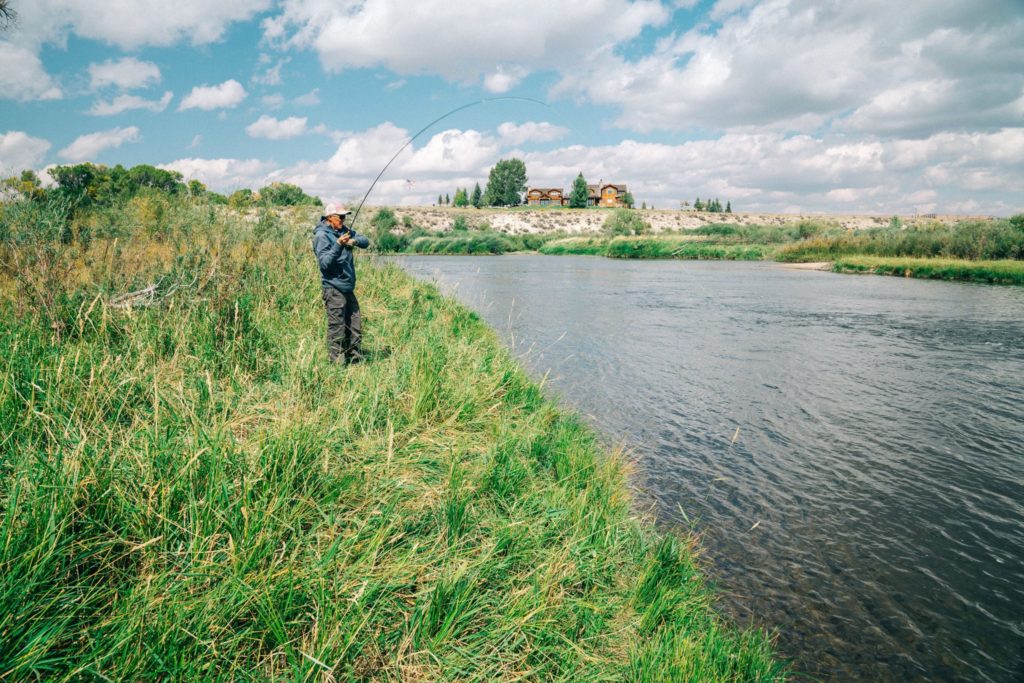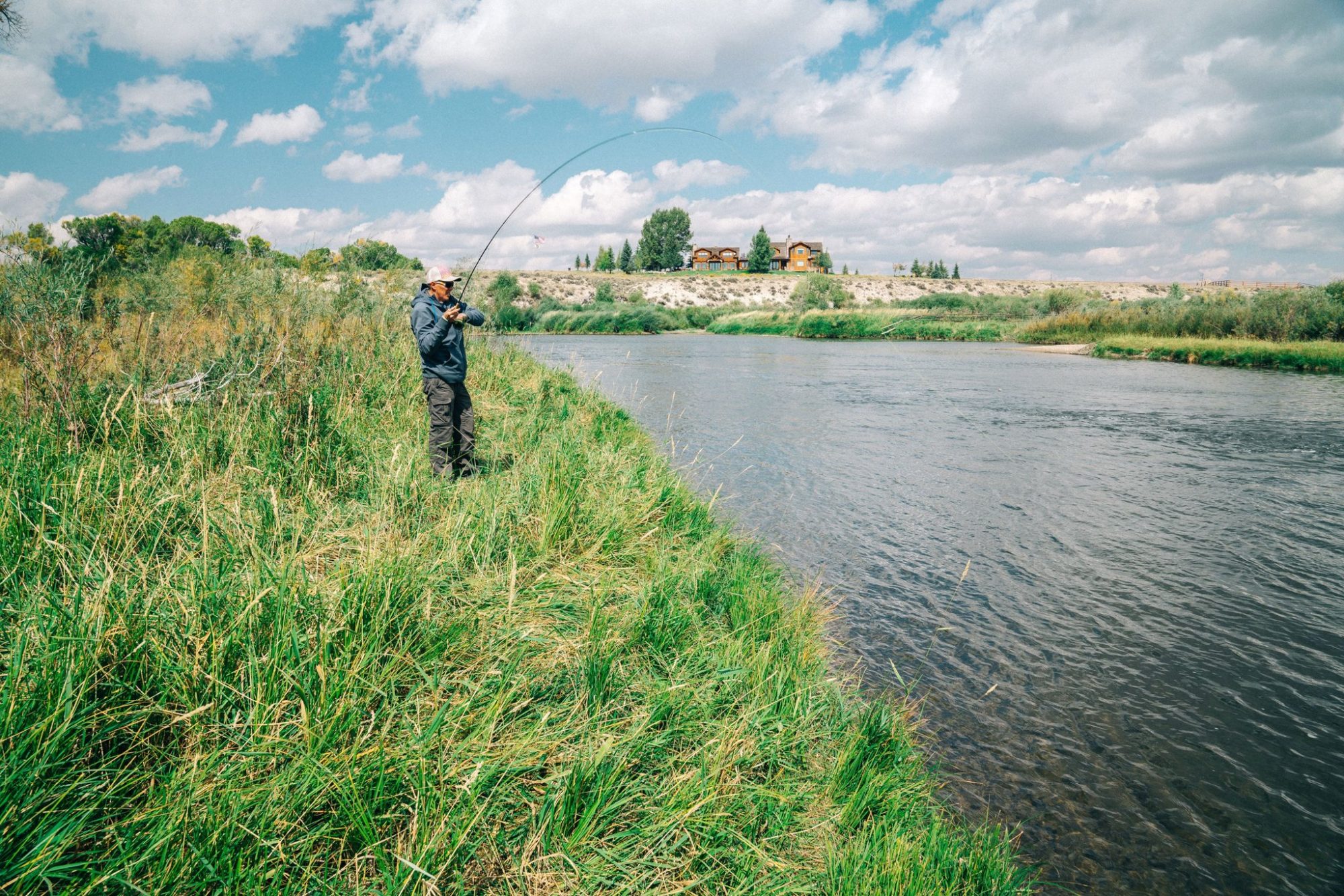
Erik Aune has been fighting the same battle since he first hooked a colorful, acrobatic rainbow trout in central Wyoming more than 20 years ago: convincing people the North Platte River is an economic force.
He and his business partner, Trent Tatum, host anglers from across the globe at their tidy fishing lodge, fly shop, and collection of modern cabins along the river near Casper. The state’s second-largest city grew first with money from agriculture and, soon after, oil. Today the 57,000-person city is starting to cater to visitors, too. It boasts a growing network of concrete pathways, a world-class biathlon range, and museums.
Even with this growing tourism industry, Tatum and Aune still can’t shake the overall opinion that the North Platte is an add-on, an oddball fishery outside the town that still proudly carries the moniker “Oil City.” It’s a perception they hope one day to change. Because while extractive industries created and still feed Casper, tourism, they argue, is a more sustainable business that can cushion the town during bust times.
They point to numbers. Visitors spent more than $3.5 billion in Wyoming in 2017, making tourism the second-largest industry in the state behind energy. Travel and tourism supported more than 32,000 jobs and created $188 million in local and state tax revenue, according to the Wyoming Office of Tourism. While almost half of that spending was in the northwest corner of the state, near Yellowstone and Grand Teton national parks, more than $290 million was in Natrona County, where Tatum and Aune call home.
Aune, 45, and Tatum, 38, embody the numbers. Aune grew up in Wyoming, the son of a fishing guide. He worked in fishing shops and saw what a life in tourism offered a family. Tatum moved from Texas to Wyoming for college and never looked back. They both were guides for the North Platte Lodge — the first permitted outfitter on the river — before buying the business in 2007.
The business thrived as the duo pumped more than $1 million into the lodge, cottages, and an RV park. They now have more than 20 employees. And they’re not the only ones — two dozen outfitters are permitted to operate on a stretch of the river that’s open year-round.
What Tatum and Aune want is for their city — and the state — to recognize the potential of outdoor recreation in Natrona County and invest accordingly. Better campgrounds along the river, improved access to trails outside town and on nearby Casper Mountain — Aune and Tatum theorize these would goose an industry that’s already improving Casper. A golf course has replaced an oil refinery. There is a whitewater park where the North Platte once ran thick with sludge. The Casper Petroleum Club, where oil executives once hobnobbed, has been replaced by a trendy brewery.
“Tourism should be softening the blows of extraction, but people don’t believe it,” Aune said. “They believe … tourism is a vapor, a phantom concept.”
Those blows are real. An oil bust in the mid-1980s left streets of houses for sale in Casper and buildings with former headquarters shuttered. The most recent energy downturn that began in 2015 led to closed businesses and mothballed schools; 1,000 residents left town. City leaders have long talked of the value of less dependence on oil, gas, and coal. Longtime residents often joke: “Please, God, give me another boom, and I promise not to mess this one up.”
But energy dependence remains, in large part due to Wyoming’s tax structure. Most public services are paid for by oil, gas, and coal royalties, while residents and companies pay no income tax. That means tourism simply couldn’t replace revenues from the extractive minerals, said Rob Godby, an economics professor at the University of Wyoming. “But it’s a really important piece of the puzzle,” he said. “As we move toward diversification, it will make us much more resilient.”
This story originally appeared in the Bitterroot newsletter.

